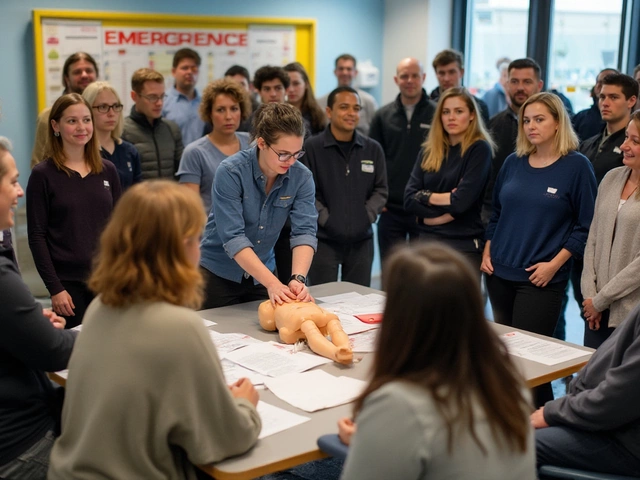Career advancement: practical steps to boost your skills and earnings
Want to climb the ladder faster? You don’t need a magic formula – just clear actions and the right training. This page gathers the most useful advice from our articles so you can start improving your job prospects today.
Why skill up now?
Employers are looking for people who can hit the ground running. A new certificate, a short‑term course, or even a hands‑on workshop can give you the edge. For example, our guide on the highest paying IT certifications without a degree shows how a single exam can open doors to six‑figure roles. In the beauty world, the highest paying esthetician careers article explains which specialties pay the best and how a short course can raise your hourly rate.
Even fields you might not expect need up‑skilling. A beginner carpenter can start earning quickly by mastering a few basic tools – our "Make Money as a Beginner Carpenter" post breaks the steps down. If you’re in hospitality, a quick hospitality training session teaches the service tricks that keep guests happy and managers interested.
Short courses also help you stay relevant when technology changes. The "Do Employers Really Value Google Certificates for Hiring in 2025?" article reveals that many hiring managers now see such certificates as proof of up‑to‑date knowledge, not just a line on a CV.
Top resources on our site
We’ve collected dozens of articles that match common career‑advancement goals. Here are a few you might start with:
- IT and tech: "What is the hardest IT certification to earn?" and "Is IT certification hard? Real stories, tips, and data for UK learners" – both give realistic expectations and study tricks.
- Safety & public services: "Best degrees for a career in safety" and "Firefighter requirements in Maryland" outline the qualifications that lead to stable, well‑paid jobs.
- Beauty & wellness: "Is becoming a beauty therapist worth it?" and "What degree do you need to become a beauty therapist?" help you choose the right path and avoid costly mistakes.
- Construction & trades: "How long does it take to learn welding?" and "MIG vs TIG welding: which should you learn first" give you a realistic timeline and the best entry point.
Each article ends with practical next steps – whether that’s signing up for a specific course, checking a salary guide, or talking to an industry mentor. Use the list to map out a short‑term plan: pick one skill, set a deadline, and track your progress.
Remember, career advancement isn’t about learning everything at once. Pick a target – a certification, a trade skill, or a new responsibility at work – and focus on it for a few weeks. When you see results, move on to the next item on your list. Over time those small wins add up to a bigger, more attractive CV.
Ready to start? Browse the articles below, pick the one that matches your goal, and take the first step today. Your next promotion, raise, or new job could be just a short course away.





